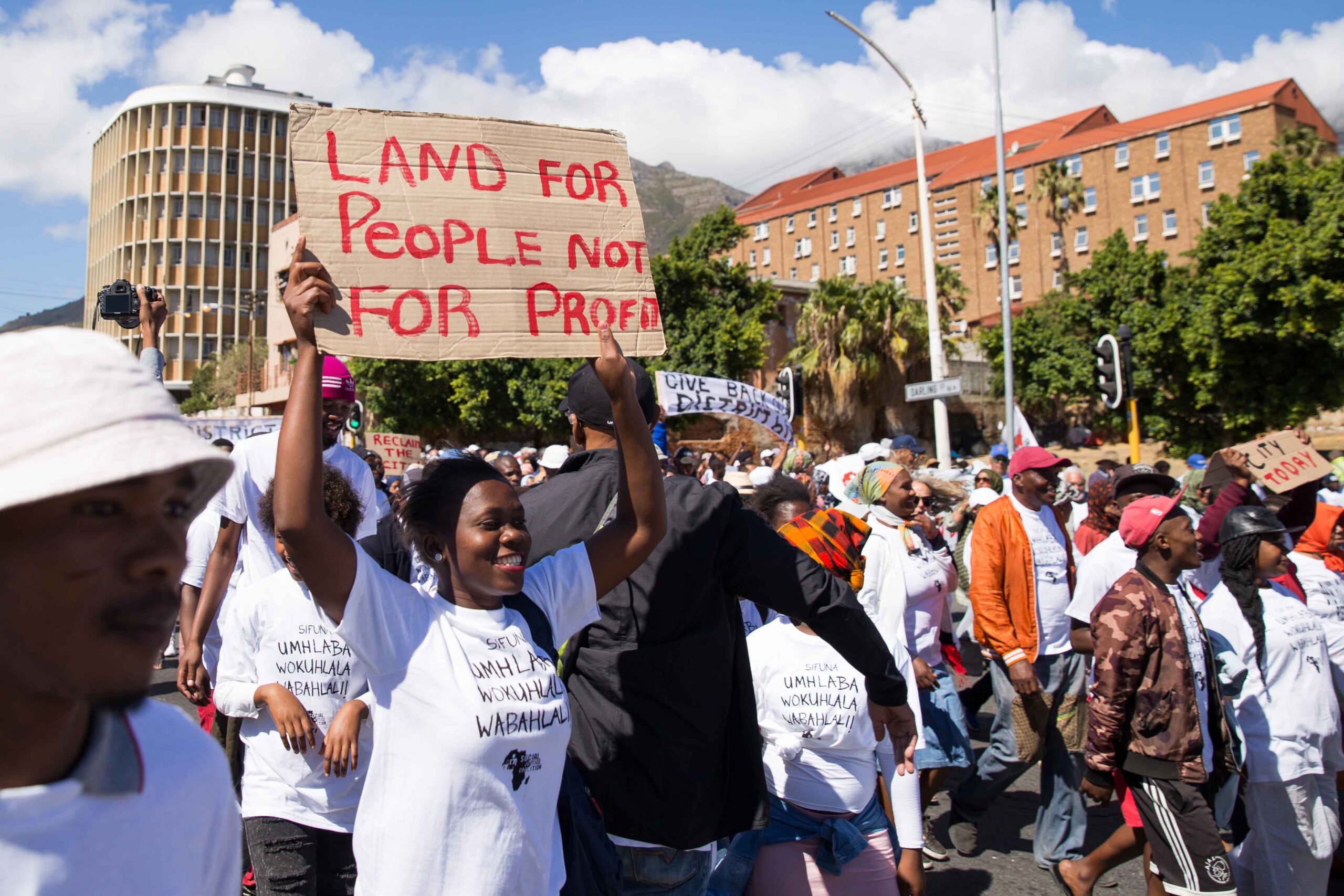A century ago, Cape Town’s first township, Langa, was created under the Urban Areas Act of 1923. The act was designed to segregate black South Africans into designated locations, isolating them from the broader economy. Serving as a labour reservoir for menial work in white industries and households during apartheid, its residents faced decades of hardship. Yet the township’s history is rich with moments of resistance. The HSRC, in collaboration with the Langa NGO iKhaya, is collating stories for a book on the history of Langa township over the past 100 years. Andrea Teagle and Diana Sanchez report.
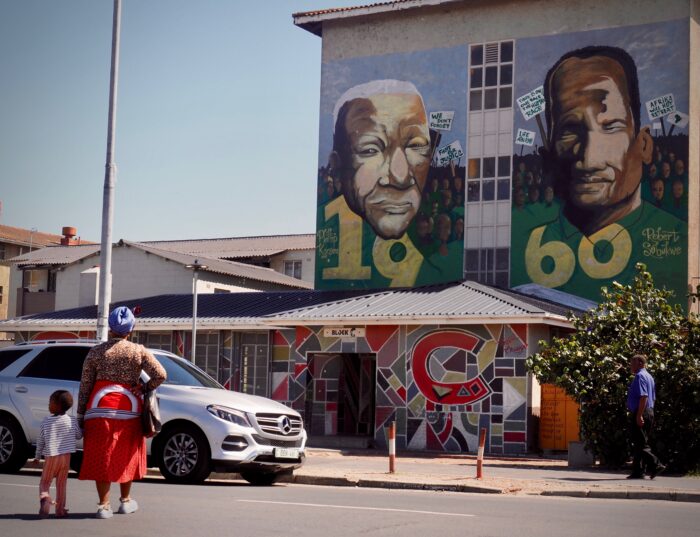
Cape Town, 1961. Nondyebo stirred her tea, careful to wipe the kitchen countertop clean. The face of a 16-year-old girl, a doek wrapped around her hair, looked up at her from the gleaming marble. She looked like someone else, Nondyebo thought. Since moving to Cape Town to work with her mother in the houses of white people, she had felt her sense of self begin to blur. Her life in Herschel village in the Eastern Cape already felt like a long time ago.
“Nondyebo!” She jerked her head up and spun around. A woman in a domestic worker’s uniform glowered at her. “No, no, no! We’re not allowed to drink tea in the house!”
The girl stared at her defiantly for a moment before following her outside. It was not only the way they were treated as domestic workers that angered her. She was angry with this woman she barely knew who called herself her mother. She was angry that she had grown up far away and that she had no relationship with her siblings. She was angry that she had had to drop out of school.
Hers was not an unusual story. The effects of apartheid bled through black families. Living in created and controlled communities like Langa, where people were deprived of decent employment opportunities, many working parents had to send their children to live with grandparents many kilometres away while they eked out a living. Even those young people lucky enough to finish school received only sub-par education under the Bantu Education system, prepared for a life of manual labour and menial work. Some, particularly the men, left their families to work in the mines in Johannesburg and Kimberley. Others, like Nondyebo, moved to Langa in Cape Town.
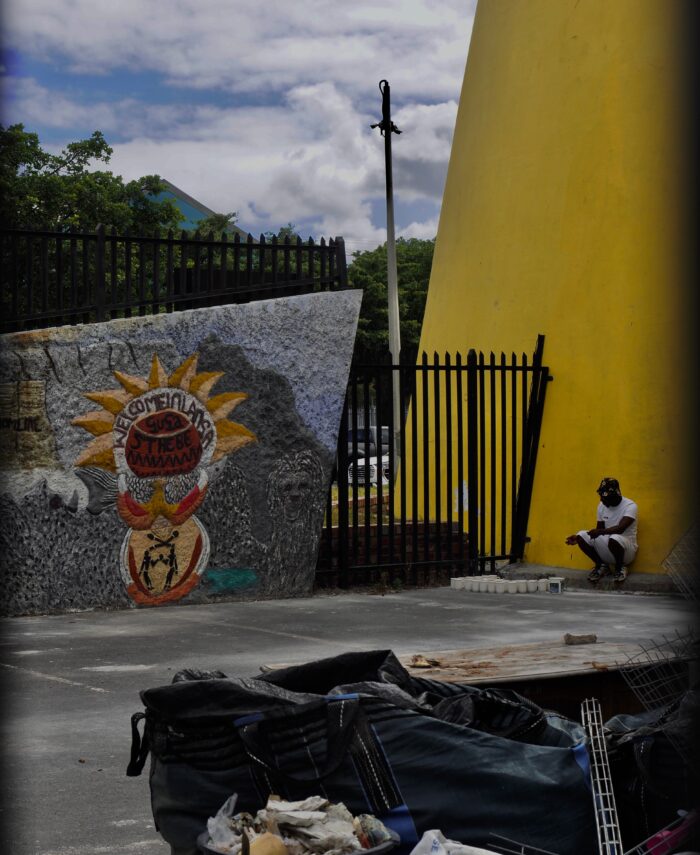
Langa in the 1960s and 1970s
Cape Town’s first township, Langa, was a place of struggle for young people in the 1960s. Created in 1923 under the Urban Areas Act, it was designated to segregate the black African community from urban areas, in isolation from the broader economy but serving as a labour reservoir. Many families shared small council homes, where they had to pay rent and feared eviction under the infamous pass laws. Domestic violence was commonplace.
However, the township was also vibrant and dynamic, with people constantly breaking the boxes the state built around them. Apartheid laws prohibited political gatherings but political groups found ways to meet covertly, often under the pretext of playing soccer or, in Nondyebo’s case, participating in informal credit groups known as stokvels or gooi-goois.
A young ceramicist sits outside Langa’s arts andcultural centre, Gugu S’thebe. With its art and music offerings, the centre embodies some of the positive changes that have taken place in the township over the past decades. However, despite its potential, this cultural hub is also underutilised and under-resourced, pointing to the ongoing socioeconomic challenges faced by residents in the area. Photo: Andrea Teagle
Langa’s history is rich with moments of resistance, researcher Gregory Houston notes. In 1944, residents protested the pass laws, and in 1954, women in the township rallied against the establishment of commercial beerhalls. In 1960, Philip Kgosana led a march of about 30,000 people from Langa and Nyanga in protest against the pass laws and detention of political leaders. In 1961, when Nondyebo arrived in Langa, the resistance movement turned to armed struggle. With the participation of Nondyebo and many other residents, Langa continued to be an important node of political resistance.
Meanwhile, people hustled to get by. Nondyebo’s mother was among many residents who made extra money selling umqombothi (African beer). Others set up fruit and vegetable stalls.
Nondyebo soon moved on to a better paying cleaning job at Groote Schuur Hospital, and then took a job in a factory, selling knitted hats and scarves on trains as a (prohibited) side business. She was constantly on the lookout for better opportunities. The difficulty was that, according to apartheid laws, better opportunities were the domain of white people. When Nondyebo started a business selling second-hand clothes, the police frequently confiscated her products.
When she was in her mid-20s, Nondyebo found a job in an Italian restaurant. By this time, she had her own children to provide for and she was determined that their childhoods would be different. She found that she was well-suited for hospitality: she was efficient and motivated, fluent in English and Afrikaans, and had the ability to think on her feet. Italian cooking came easily to her. Little by little, she worked her way up the industry, pushing the boundaries of what was possible for black women at that time.
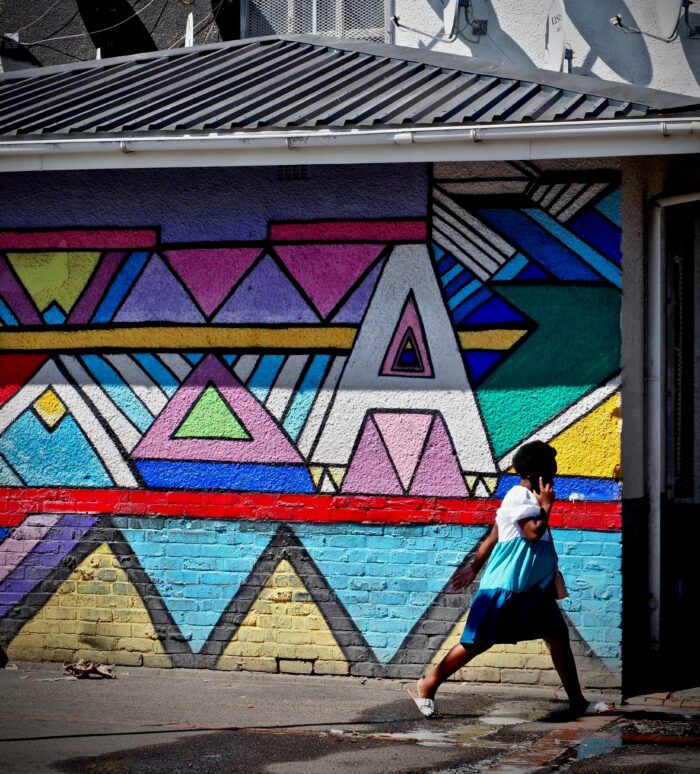
Langa, present day
Kholowetu Vazi, a young woman in her 20s, sits opposite Nondyebo, listening respectfully. A recording device is in her hand. They are in the same house where Nondyebo had lived with her four children. It was this house – once a council house in her name – that had enabled her to leave an abusive husband. It was here, where her children studied for exams and celebrated passing matric, that her oldest son was tragically shot by the police in the 1980s.
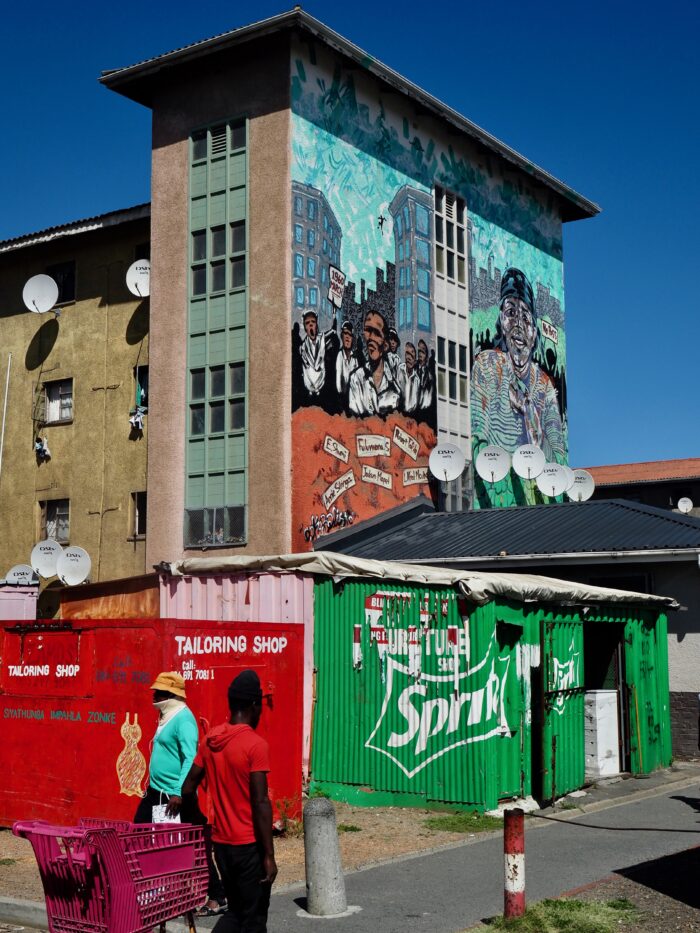
The house looks different now. While it remains a modest space, it is warm and inviting on this fresh morning. The street outside is also different – many changes have taken place in Langa over Nondyebo’s lifetime.
There is political freedom but also deep political divisions. Many unemployed young people roam the streets, but lively small businesses operate everywhere. There is now freedom of movement but a dysfunctional railway system. Most people move around in taxis, with some brave cyclists exploring new forms of mobility. At the heart of the township is a beautiful but underused cultural centre, Gugu S’thebe.
For elderly women like Nondyebo, the fight was hard and long, but it has paid off. As the three-hour interview comes to an end, she puts her cup of tea down on the table. “It has been difficult, all the way through,” she tells Vazi. “It is only now that I can say I’m happy.”

The Langa Turning 100 Project
Nondyebo’s story is one of many that the HSRC, in collaboration with the Langa NGO iKhaya, is collating into a written history of Langa township over the past 100 years. As part of the project, Vazi and another young Langa resident, Akhona Mgcina, have received training to become qualitative researchers. The book is expected to be published over the next two years and copies will be available in the Langa library and the local museum.
The project is an unprecedented collaborative effort to construct a history “from below”, examining key transformations through the eyes of local residents. It also seeks to identify areas of community concern and potential areas for future research. Despite the challenges of working with a small NGO and training researchers, this is central to the project’s concept and, hopefully, its success.
As the research team leaves Nondyebo’s house, Vazi reflects on her first qualitative interview. She is humbled by the challenges Nondyebo faced when she was Vazi’s age. “Nowadays we walk freely, we go wherever we want. Although gender-based violence remains a huge issue, I can be an independent woman. I don’t need to marry to have access to a house … I can trade whenever and whatever I want, or be an accountant or an engineer.”
Vazi believes the book will be an important reference for young people of Langa today and for future generations. “It will be an eye-opener,” she says. “And teach us a thing or two about how to overcome big challenges, as our elders had to do.”
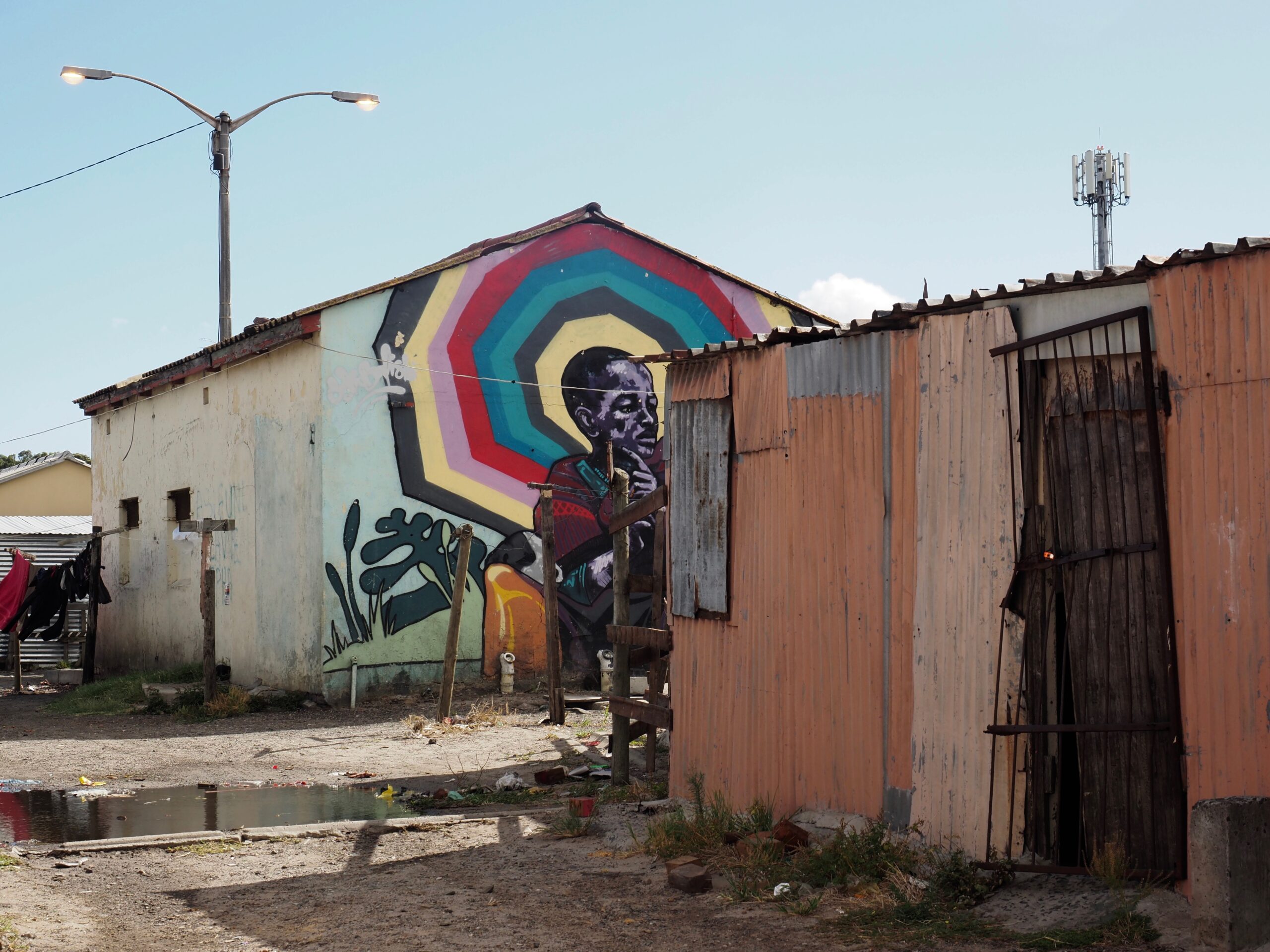
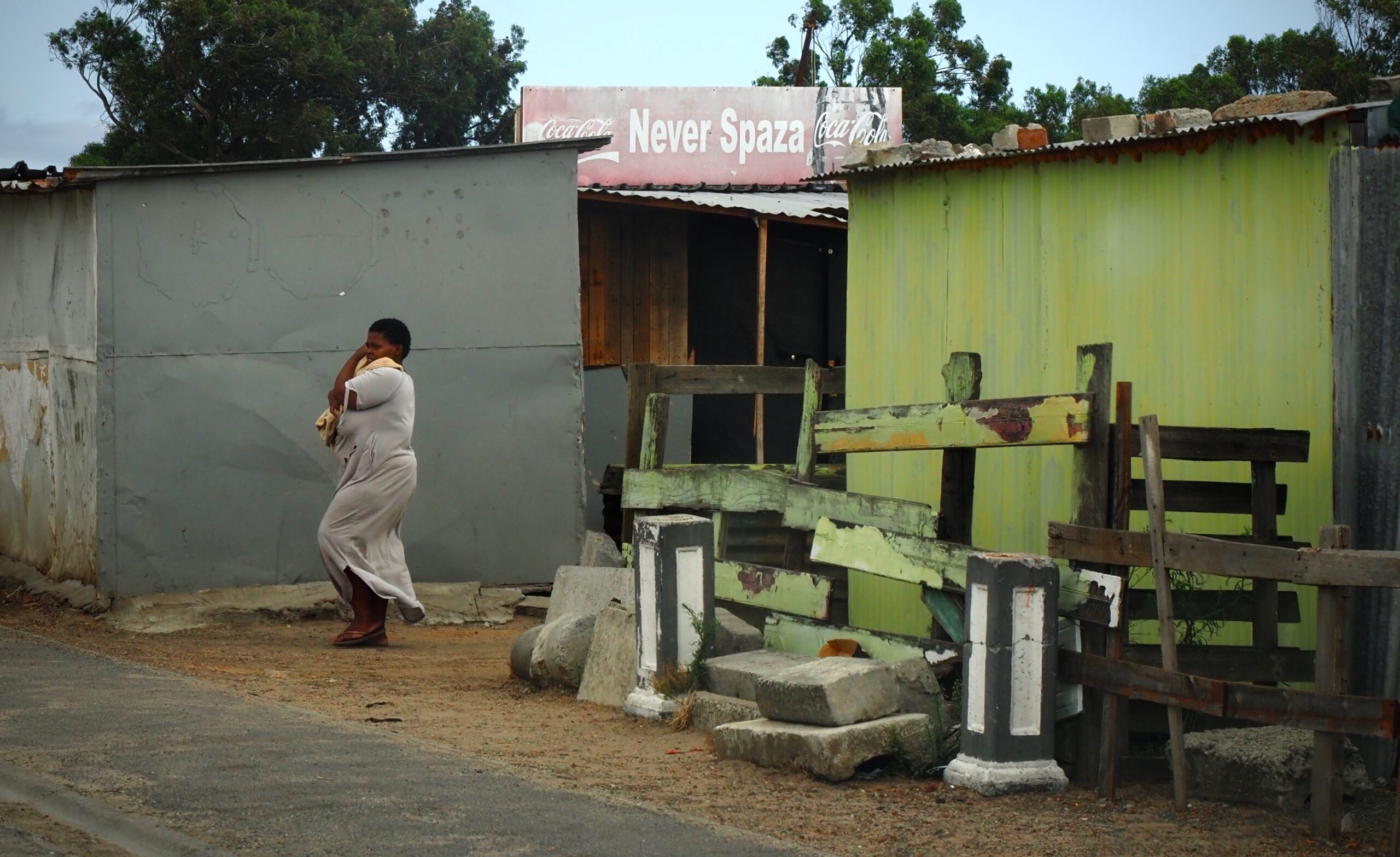
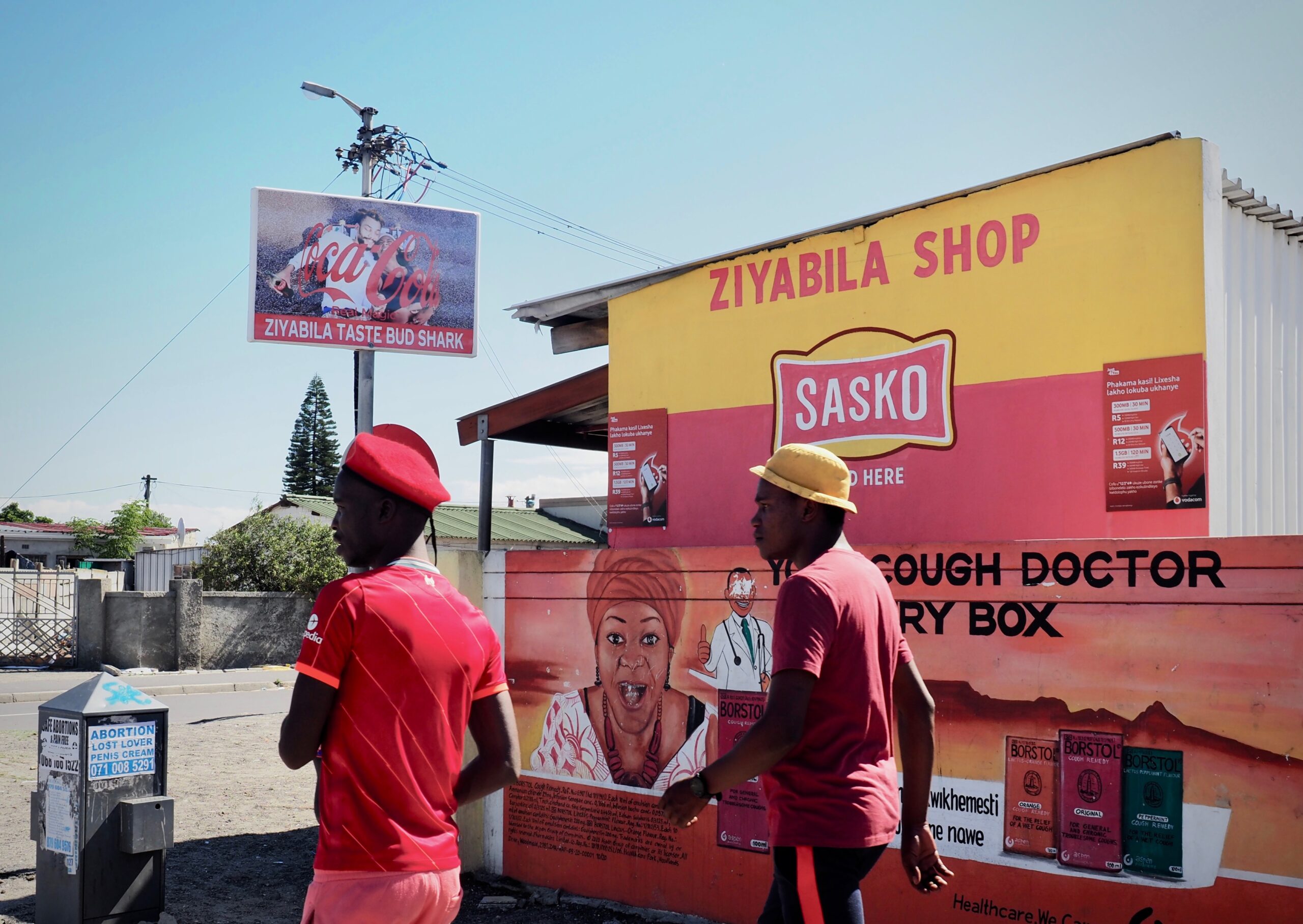
This article is the first of a two-part series by Andrea Teagle, a science writer in the HSRC’s Impact Centre; Diana Sanchez, a senior researcher in the HSRC’s Developmental, Capable and Ethical State division; and Timothy Stanton, the founding director of Stanford University’s Bing Overseas Studies in Cape Town.

